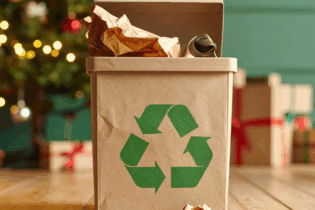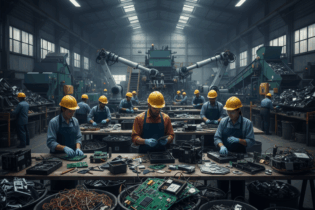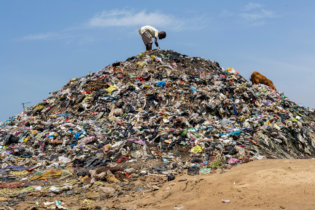The agricultural and biogas sectors of South Africa are set to benefit from the revolutionary new environmentally-friendly SEPCOM solids-liquid separator introduced to the local market in 2011 by WAMGROUP, manufacturer of screw conveyors and various other bulk material handling and processing equipment.
SEPCOM is a solids-liquid separating machine which makes use of advanced technology, notes WAM South Africa general manager, Emilie Marchand. “Using principles of separation through gravity and mechanical pressing, the machine is designed to separate the liquid phase from the solid phase in a wide range of substances, including; sludge, sewage and manure,” she explains. The screw technology in the machine sets it apart from any other product on the market, as the patented screw conveyor is manufactured from a unique engineering polymer called sint, which is a non-stick and self-cleaning material. “Sint is a combination of polyurethane and polypropylene, and offers the user peace of mind that it will never get blocked or clogged, thanks to its unique properties,” Marchand continues. After receiving the material to be separated, the machine conveys it using the revolutionary screw conveyor inside the separator casing. Marchand adds that the liquid phase is separated through the mesh of the cylindrical screen, which encloses the screw conveyor. “Along its path towards the exit, the material gradually separates progressively until a plug of almost dry material has formed near the outlet. This plug is then is continuously expelled through the outlet diaphragm,” she notes.Marchand points out that separating solids from liquid in slurry is a vitally important solution to the urgent challenge of reducing the amount of nitrates and phosphates that are being dumped into groundwaterregularly. “In the past, waste was traditionally pumped into dams or rivers. With constant changes to environmental legislation; however, industrial operations are now looking at ways of recycling the water, and the machine provides the ideal solution to this challenge.”
“As South African laws become more environmentally-friendly, local industrial applications such as dairy farms and pig farms in particular, can benefit from recycling the vast amounts of waste produced by the livestock on a daily basis,” she continues. “The process will assist these operations in significantly reducing their carbon footprint by recycling water, while the final dry product after separation can be used as fertiliser or cattle bedding – which can be used onsite, or sold on for a profit.” Solids-liquid separating machinery is a relatively new concept locally; however, an increasing number of agricultural applications are showing a keen interest in this green and cost-effective technology.






